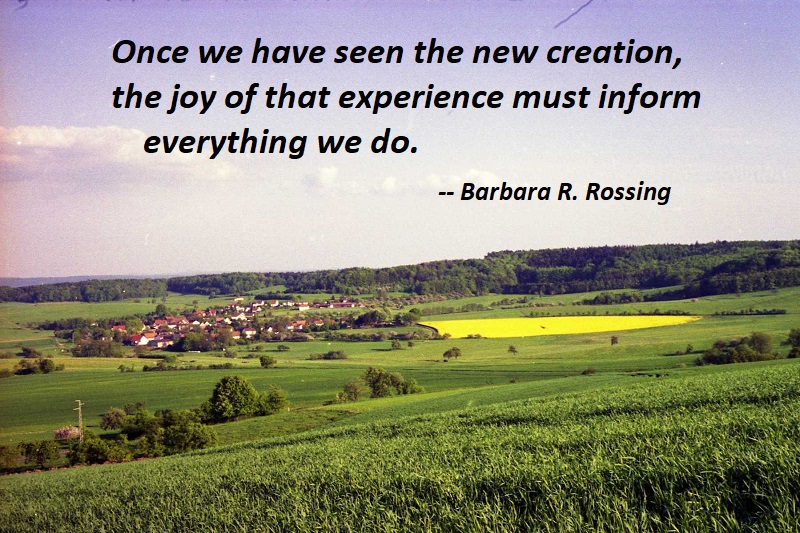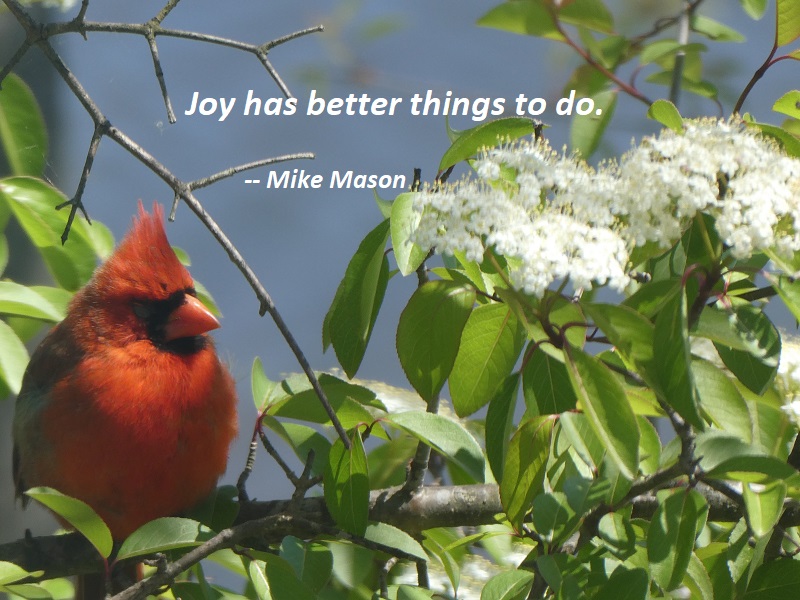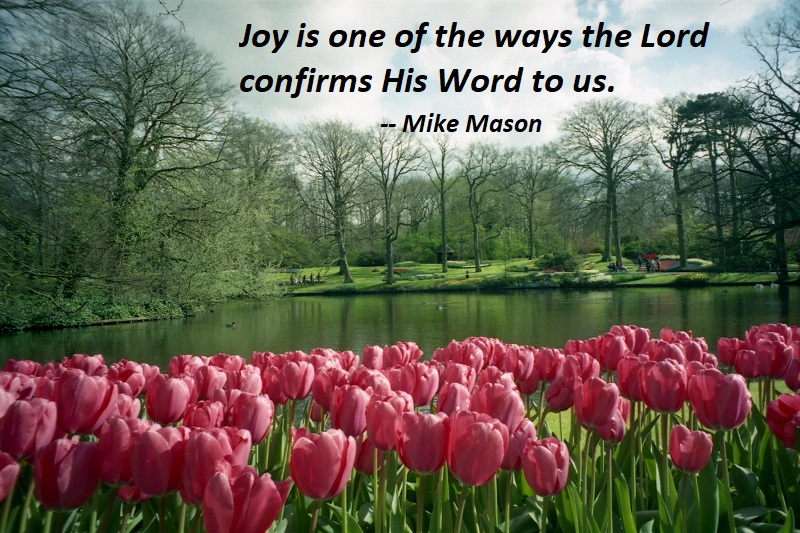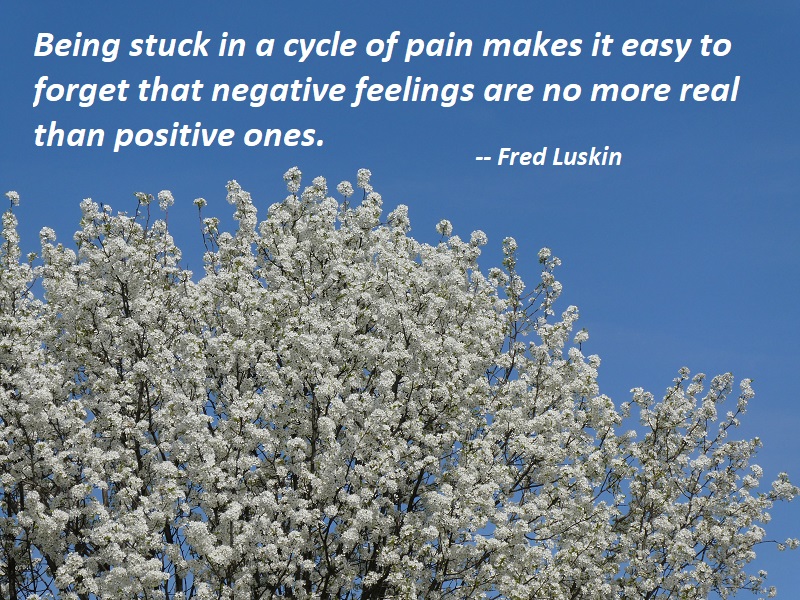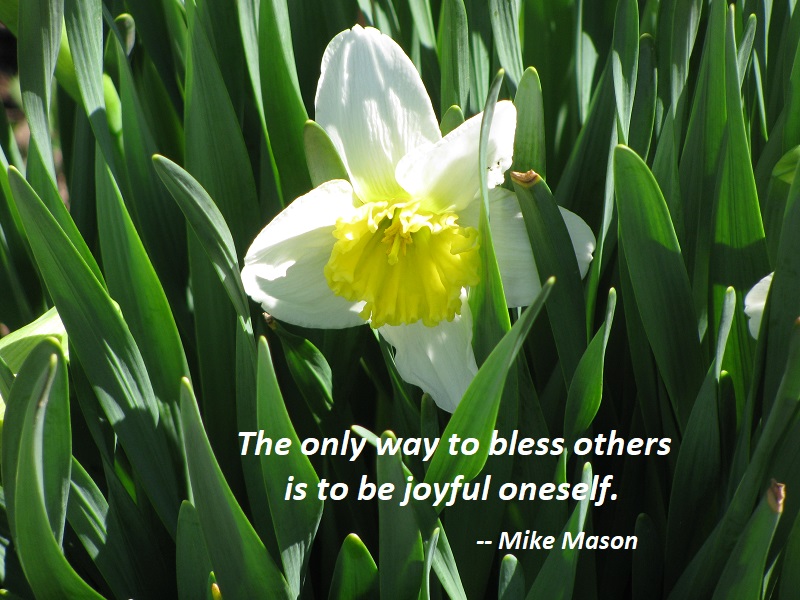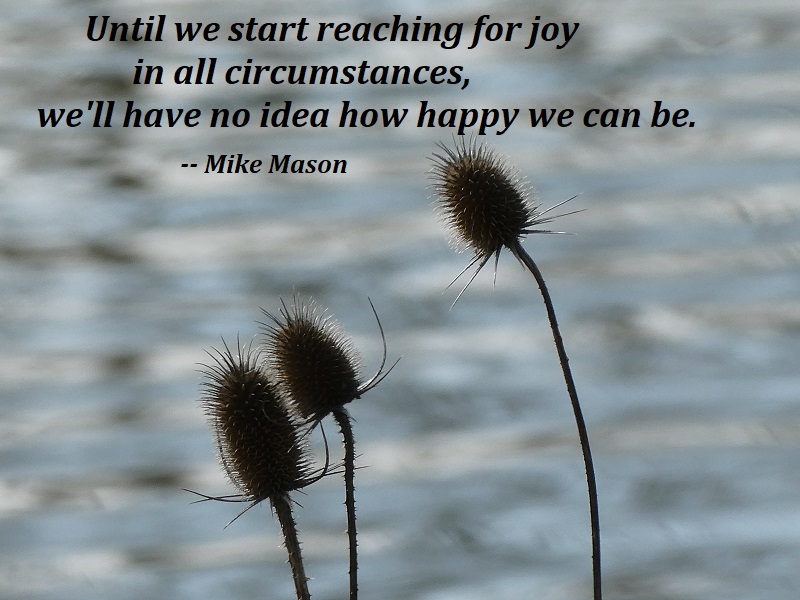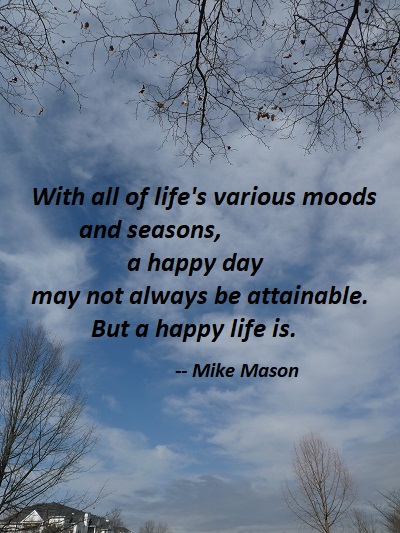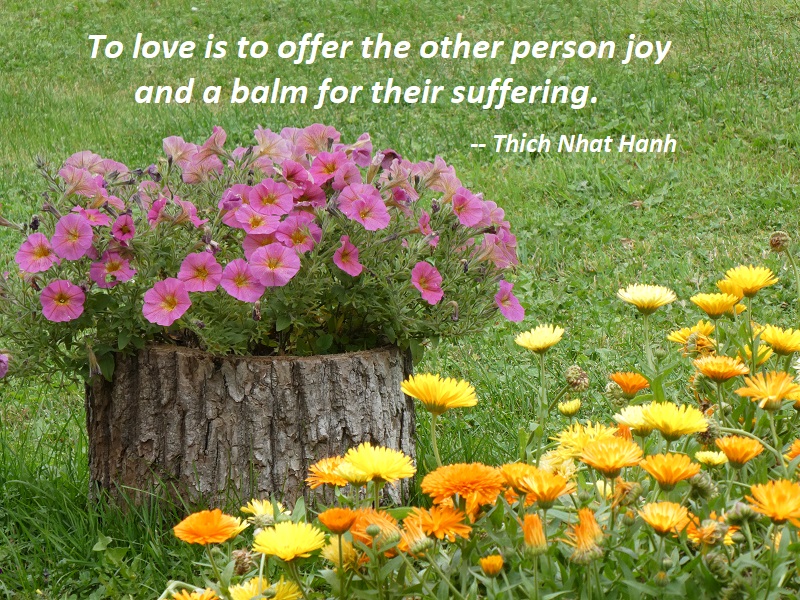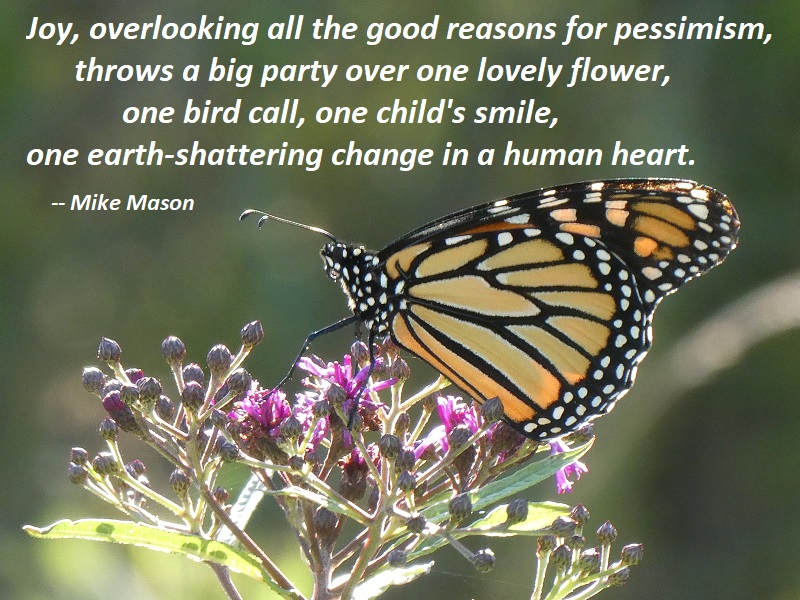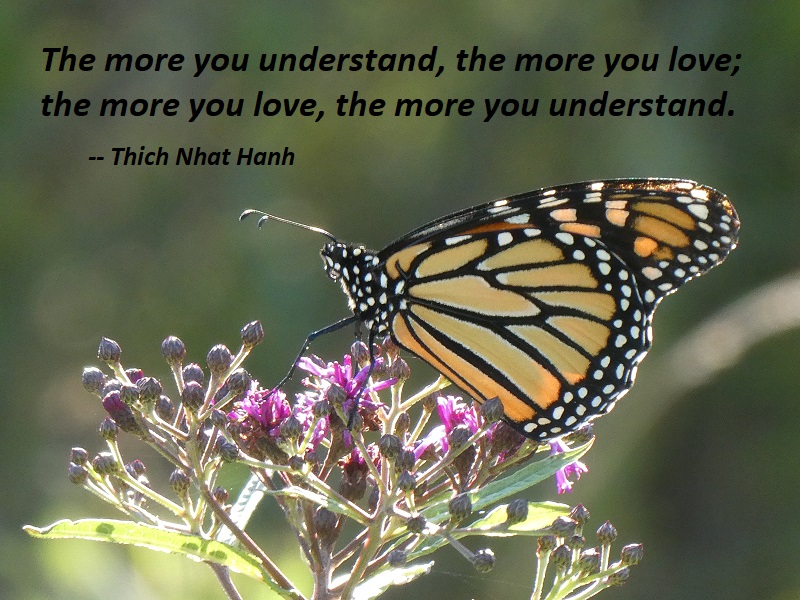Joy in Thankfulness
To be happy is to count oneself among the haves, not the have-nots. Joy comes from having all we need and more. When we have an abundance, we’re thankful, and thankfulness feeds joy so that we have more and more. Though we sit down to an empty table, we give thanks and somehow the food of joy arrives, just as happened when Jesus fed a multitude with one boy’s lunch. Being thankful for what we have, however little it may seem, means we never want for happiness.
When we see ourselves as have-nots, on the other hand, the thieves of discontent and anxiety quickly set to work, stealing even what we have. This is what happened to Adam and Eve, as the serpent provoked in them a sense of have-not, and they lost Paradise. People were created to be happy, and there’s no reason not to be. Unhappiness is understandable but not defensible. When we’re fooled into being unhappy, unhappiness itself becomes our downfall. All sin stems from discontent, whereas the person who is joyful in the Lord will not go astray.
— Mike Mason, Champagne for the Soul, p. 165
Photo: South Riding, Virginia, May 3, 2020

